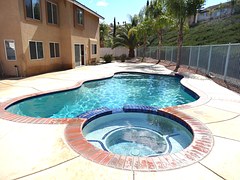How to Dissolve a Tennessee LLC
How to Dissolve a Tennessee LLC
 Need to dissolve your Tennessee LLC? The method for dissolving a business entity depends on the type of entity and its structure. This post will focus on the termination of a Tennessee Limited Liability Company (LLC). In addition, while LLCs can be dissolved both judicially and administratively, we will focus on dissolution by the person or persons associated with the LLC.
Need to dissolve your Tennessee LLC? The method for dissolving a business entity depends on the type of entity and its structure. This post will focus on the termination of a Tennessee Limited Liability Company (LLC). In addition, while LLCs can be dissolved both judicially and administratively, we will focus on dissolution by the person or persons associated with the LLC.
Disclaimer: This information is intended to be a general overview of the LLC termination process in Tennessee. The termination process may be different depending on the LLC, its makeup, or a client’s specific circumstances. This information should not be used as a substitute for consulting an attorney about terminating your LLC.
Statute on how to dissolve a Tennessee LLC
LLCs formed on or after January 1, 2006, are governed by the Tennessee Revised Limited Liability Company Act. Tenn. Code Ann. 48-249-601 provides the various methods for dissolving a Tennessee LLC and provides that an LLC is dissolved upon the first of the following to occur:
- Expiration of the period fixed in the Articles of Organization, if any:
- The occurrence of an event specified in the LLC documents;
- Action of the members in accordance with Tenn. Code Ann. § 48-249-603;
- Action of the organizers under Tenn. Code Ann. § 48-249-602 if not contributions have been accepted by the LLC;
- An order of the court under Tenn. Code Ann. § 48-249-616 or § 48-249-617, also known as judicial dissolution;
- An action of the Secretary of State under Tenn. Code Ann. § 48-249-605; also known as administrative dissolution; or
- If there are no LLC members and a notice of dissolution is filed within 90 days of the occurrence of the event terminating the interest of the last remaining member and the LLC documents specify that the termination of the interest of the last member dissolves the LLC.
The statute specifically provides that the “termination, dissociation, death, incapacity, withdrawal, retirement, resignation, expulsion, bankruptcy or dissolution of any member, or the occurrence of any other event that terminates the membership interest of any member, shall not cause the LLC to be dissolved.” If any LLC is to be dissolved in any of these instances, it must be stated in the LLC documents.
What to Do Before Termination
Before terminating your entity with the Tennessee Secretary of State, the entity must file a Final Tax Return with the Tennessee Department of Revenue and obtain a Tax Clearance Letter to submit with its termination documents.
Submitting Termination Documents
If a Tennessee LLC is terminated by the organizers, Articles of Termination by the organizers must be filed with the Tennessee Secretary of State. If the LLC is terminated after a designated period, under the LLC documents, if there are no members left, or if by consent of the members, Notice of Dissolution must also be filed with the Secretary of State. Be sure to have appropriate documentation filed with your LLC documents showing any action that was taken to effect this decision, if necessary.
What to Do After Termination
Once an entity is terminated with the State, the LLC must stop doing business and wind up its affairs. To wind up the business, management must collect and pay all debts, sell assets, and distribute any remaining funds to the members of the LLC.
You Still Need to Consult a Business Lawyer
This information is only a general overview of the LLC termination process in Tennessee. The process may be different depending on the LLC, its makeup or a client’s specific circumstances. For this reason, it is important that you consult an attorney before taking steps to terminate your LLC.
If you need help terminating your LLC, we would be honored to assist you. Please call us at 901-372-5003 or email us here.



 We hope you never need a divorce. But just in case you have questions about what a divorce in Tennessee involves, we’ve invited Guest Blogger and Family Law Attorney Lucie Brackin to fill you in. Lucie is a partner with
We hope you never need a divorce. But just in case you have questions about what a divorce in Tennessee involves, we’ve invited Guest Blogger and Family Law Attorney Lucie Brackin to fill you in. Lucie is a partner with 
 Wyoming Close LLCs Protect Assets
Wyoming Close LLCs Protect Assets

 Pool Drains Can Be Deadly
Pool Drains Can Be Deadly 
 How do you achieve asset protection? How do you best limit your liability and protect the assets and investments you have spent so much of your life building up? While you cannot completely eliminate exposure to potential liability, you can achieve asset protection through the use of simple techniques, like buying the right kind of insurance, or through the use of more sophisticated tools like asset protection trusts.
How do you achieve asset protection? How do you best limit your liability and protect the assets and investments you have spent so much of your life building up? While you cannot completely eliminate exposure to potential liability, you can achieve asset protection through the use of simple techniques, like buying the right kind of insurance, or through the use of more sophisticated tools like asset protection trusts.




 “Can we sue them for defamation?” That is a question we receive very frequently from both Plaintiffs and Defendants we are representing in pending litigation. Typically, the question is a reaction to reading or hearing something alleged in the lawsuit, whether in a complaint, answer, discovery responses, or during courtroom or deposition testimony. The client asking that question usually feels that his or her integrity is being questioned, is very upset, and wants to know if he or she can “counter-sue.” In the context of litigation, the answer is no. Let’s explore why.
“Can we sue them for defamation?” That is a question we receive very frequently from both Plaintiffs and Defendants we are representing in pending litigation. Typically, the question is a reaction to reading or hearing something alleged in the lawsuit, whether in a complaint, answer, discovery responses, or during courtroom or deposition testimony. The client asking that question usually feels that his or her integrity is being questioned, is very upset, and wants to know if he or she can “counter-sue.” In the context of litigation, the answer is no. Let’s explore why.